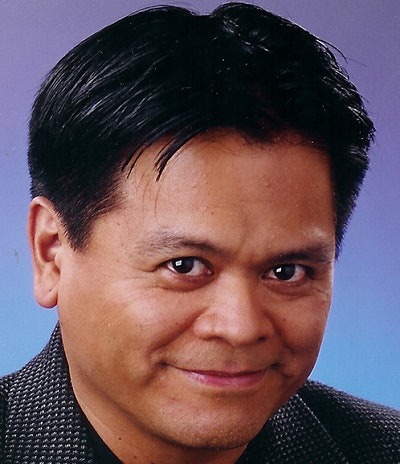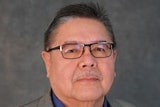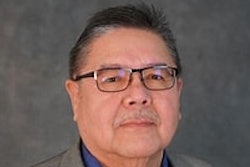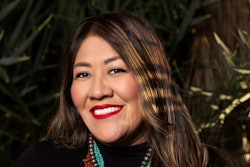I call Larry Itliong a classic H.O., as in “historical omission.”
If you talk about the farm labor movement in California and don’t mention Itliong, you have a hole in your soul.
Itliong is the Filipino American who actually began the Delano grape strike in 1965 that Chavez later joined and used as his platform to international fame.
But it wouldn’t have happened without the spark of Larry Itliong.
That’s why Itliong is one of the reasons why October is Filipino American History Month.
What? Isn’t it Latino something too?
Concurrently, since Sept. 15 to October 15, it’s also been National Hispanic Heritage Month, which double dips into two months and broadens its 30 days not unlike Imperial Spain.
It does, however, honor the days that countries conquered by Spain in Latin America and Mexico celebrate their independence. Expansion into October means the inclusion of Columbus Day, which takes the spotlight off the Italian’s dirty deeds to the indigenous with the name Dia de la Raza.
Thanks to Ronald Reagan it was all made Public Law 100-402 in the ‘80s.
You can probably thank Reagan for September and October Taco Tuesdays.
But for Filipinos, especially like those with Spanish colonial names, it’s particularly ironic, as we wait for the 15th to pass and have the whole month to ourselves. Filipino American History Month honors the actions of Filipinos in America and is thus a genuine celebration of American history.
 Emil Guillermo
Emil GuillermoIn 1991, the Filipino American National Historical Society (FANHS) began the commemoration, but it wasn’t until 2009 that House and Senate resolutions officially recognized October as Filipino American History Month.
So now it’s the 10th year anniversary in October—the entire month.
THE FIRST FILIPINOS
The main event would be appear to have occurred Oct. 18, 1587. That’s when the very first Filipinos–some “Luzones Indios” traveling in a Spanish galleon—came ashore on the central coast of California. In Morro Bay, near San Luis Obispo.
FANHS has placed a sign heralding the arrival of the first Filipinos to the continental U.S., 432 years ago to date.
We honor it. But the truth is they were essentially deckhands, slightly better than slaves. Had they made a break for it, or even joined the Native Americans they encountered, then maybe we could have owned California. That would really be worth remembering.
But they didn’t. So we don’t, generally.
The date honors a high point in our subjugation. Filipinos were here first as middlemen for Spain. We did the dirty work for the colonizers. We stay positive: Filipino feet stepped foot in America first!
Hip-hip-hooray?
I’d rather get out the birthday horns out for Larry Itliong.
ITLIONG’S BIRTHDAY AND HIS WORDS
Turns out October has some special birthdays, with Larry Itliong’s falling on the 25th.
While Chavez is remembered as the farmworker icon, his name emblazoned on schools, parks, and roads, Itliong has been generally forgotten, treated by society as it seems Filipinos have always been treated. As nothing.
But labor movement historians know that without Itliong, there would be no Chavez. And slowly there has been a push to put Itliong’s name on schools and buildings as a belated memorial.
Instead of his name on a building, you should hear his words. And he said plenty.
“You go to the United States where they pick money on trees,” Itliong says on a special tape recording of a classroom talk at Debra Panganiban Louie’s Asian American class at UC Santa Cruz in 1976.
“Did that happen? Hell, no,” adds Itliong, who lived when Filipinos worked the fields for less than a dime an hour.
Itliong came to America as a laborer in the 1920s. He was 16 with just a 6th grade education.
Unlike Chavez, Itliong was not a mysterious, charismatic figure, He was a streetwise guy, who chomped on cigars and lost three fingers in an Alaskan cannery accident. Thus, the nickname “7 Fingers.” He was a guy who wouldn’t back down. Itliong knew both how to talk and fight.
“I have the ability to make that white man know I am just as mean as anybody in this world,” he says on the tape to students in 1976, a year before he died at age 63. “I could make him think, and I could make them recognize that I’m a mean son of a bitch in terms of my direction fighting for the rights of Filipinos in this country. Because I feel we are just as good as any of them. I feel we have the same rights as any of them. Because in that Constitution, it said that everybody has equal rights and justice. You’ve got to make that come about. They are not going to give it to you.”
Itliong says Filipinos in the fields would too often find themselves netting less than 75 cents for an 8-hour day. And because of their status, they were barred from owning property, marrying, or starting families.
“Prior to 1936, we were nobody,” Itliong says on the taped lecture. “We’re not considered nationals, aliens, not considered citizens, we’re nothing. We are nothing in this country. It means you don’t have any kind of recognition.”
Itliong fought for the Filipinos, but only recently has there been a move to fight for him. It may be because he was a fearless, loud, and very public Asian American of Filipino descent, with an open and blunt communication style.
“Lots of Pinoys don’t like me because I’m an outspoken person,” he said in the classroom tape. “If I don’t like you, I’ll tell you, you know. But if I know you’re wrong, I’ll tell you you’re wrong…But if you don’t tell me I’m wrong, how can I correct myself…and how can we progress? Especially in this country…Here in the United States, there’s very few of us. The least we can do is to be able to understand and be able to work with each other.”
There was nothing wrong with Itliong’s approach. Only with history’s failure to recognize his unwavering advocacy to empower exploited Filipinos.
Itliong’s gift remains to this day a powerful model for us all.
Maybe he’ll get a mention in the handful of Asian American history classes that exist in higher ed.
It’s the 10th Anniversary of October as Filipino American History Month. As part of our country’s great diversity, we should all remember Larry Itliong.
Emil Guillermo is a journalist and commentator. He writes for the Asian American Legal Defense and Education Fund. You can follow him on Twitter @emilamok.
















